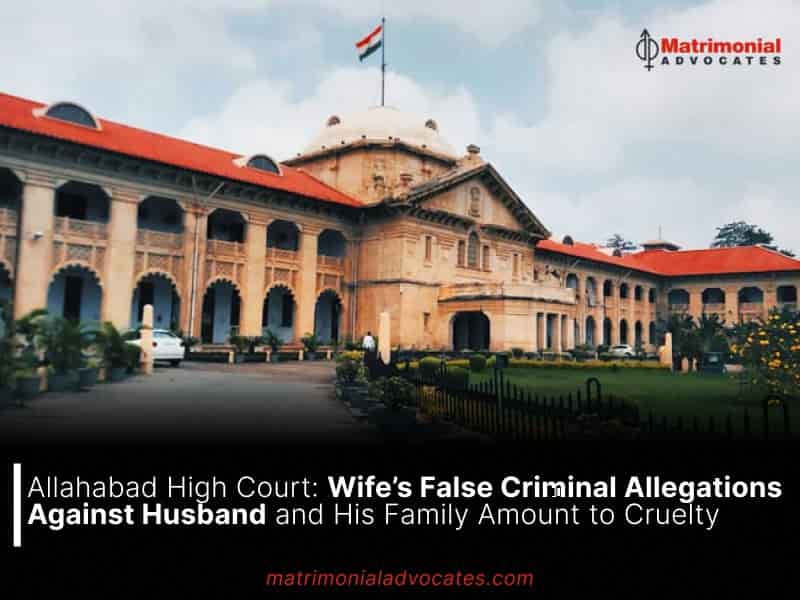
“For the act of cruelty committed, once arrest of parents of a spouse is caused on false allegations or allegations found to be false during a criminal trial, no further or strict proof of cruelty may be prescribed or applied by Courts.”
Allahabad High Court: In an appeal filed under Section 19 of the Family Courts Act, 1984, related to the Family Court’s judgment that dissolved the marriage without any provision for permanent alimony, the division bench of Justices Saumitra Dayal Singh and Donadi Ramesh found that the husband’s allegations of cruelty were substantiated. As a result, the Court concluded that there was no need to alter the Family Court’s decree. However, the Court mandated that a lump sum alimony of ₹10,00,000 be paid to the wife by December 31, 2024.
The couple married in 2002 and has a son together. The husband claims that the wife left him on February 12, 2006, and has since refused to reconcile. In 2006, the wife filed for divorce. The husband has accused her of cruelty, citing a false criminal case she lodged against him and his family under Sections 498A, 323, 504, and 506 of the Penal Code, 1860, as well as under Section 3 in conjunction with Section 4 of the Dowry Prohibition Act, 1961, alleging demands for dowry. It is noted that the husband’s parents were arrested in connection with this case but were later released on bail.
The Court noted that the first FIR was filed six years after the marriage, and the second was lodged almost two months after the wife filed for divorce. It also observed that the husband and his parents were acquitted in the criminal case because the wife was unable to support her allegations during the evidence phase and turned hostile. As a result, the Court concluded that a clear claim of cruelty existed. The act of cruelty, defined by the false allegations that resulted in the arrest of the respondent’s parents, was confirmed.
The Court rejected the wife’s claim that the dowry demand allegations, which prompted the criminal prosecution against the husband, were merely a genuine response to the divorce proceedings and were never intended to lead to the serious consequence of marriage dissolution. The Court emphasized that when a spouse’s parents are arrested based on false allegations, or if the allegations are later proven false during a criminal trial, no further or stricter proof of cruelty is necessary for the Courts.
The Court observed that the husband endured significantly cruel treatment, which likely made him feel unsafe living with his wife. The wife’s actions harmed the husband’s and his family’s reputation and standing in society. Given this distress, the Court determined that the husband should not be expected to endure such circumstances and restore their marital relationship.
As a result, the Court found the husband’s claims of cruelty to be substantiated and concluded that there was no need to alter the Family Court’s decree.
Regarding permanent alimony, the Court noted that the wife is gainfully employed as a member of the teaching faculty at a reputable institution, earning approximately ₹60,000 per month. Considering that their son has reached the age of majority, the Court ordered that a lump sum alimony of ₹10,00,000 be paid to her by December 31, 2024. If this payment is not made by the deadline, it will accrue interest at a rate of 8% from the date of this order until it is fully paid.
Consequently, the Court partially upheld the appeal.





